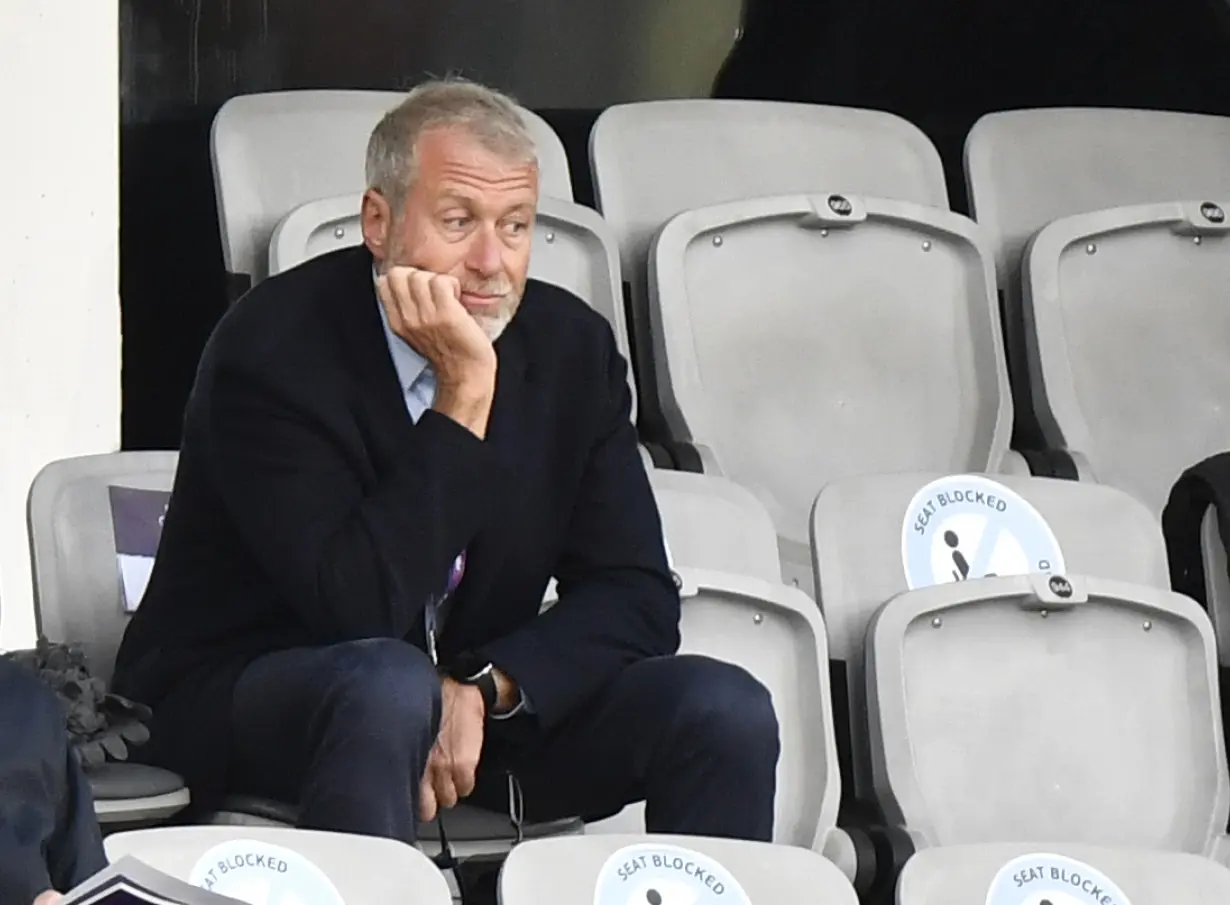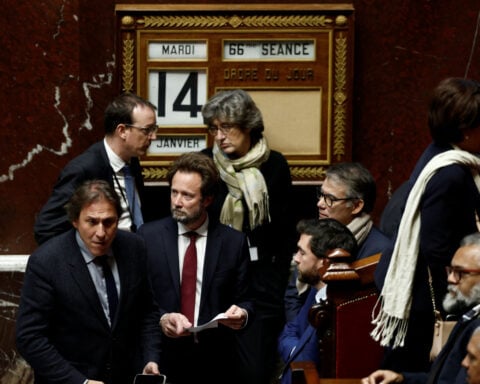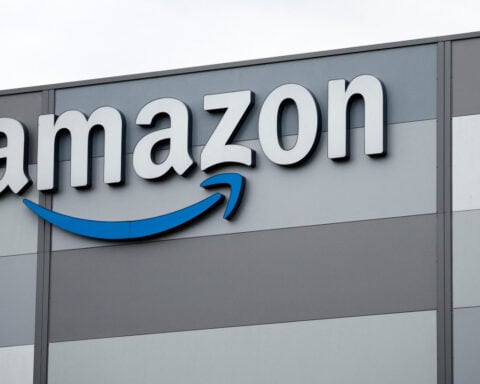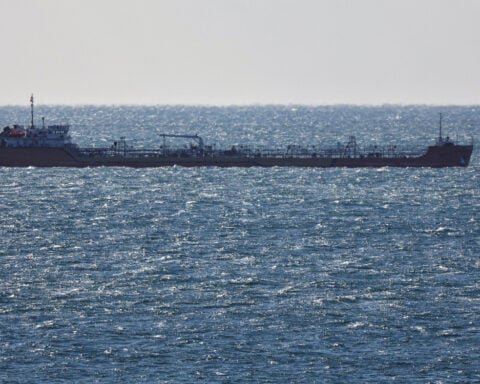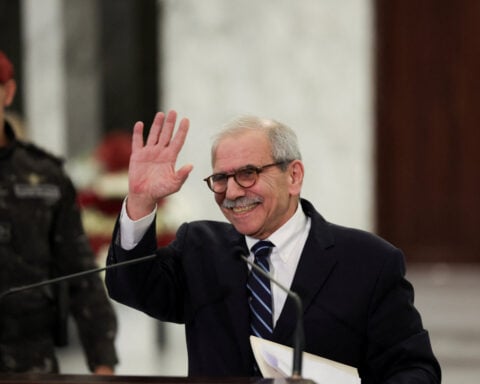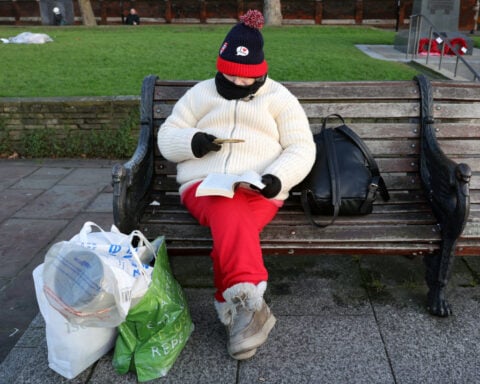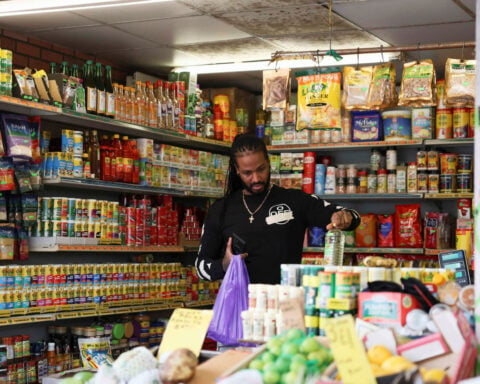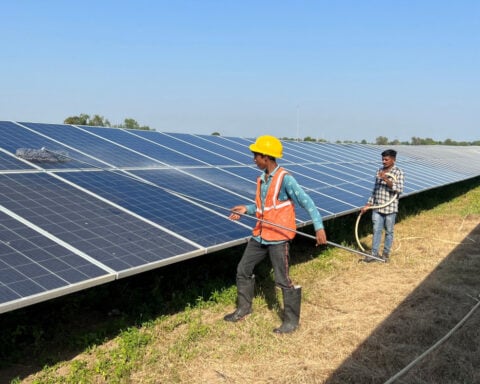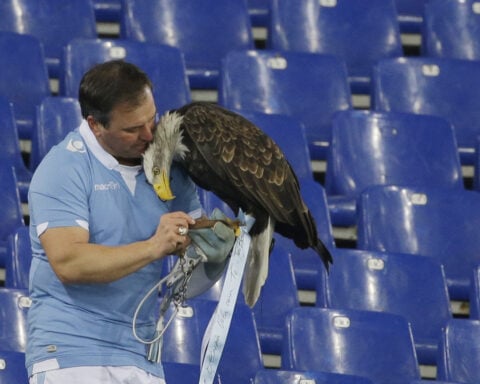U.K. lawmakers expressed frustration Wednesday that funds from the sale of the Chelsea soccer club have not yet gone to support Ukrainian war victims as had been promised nearly two years ago by the former owner, Russian billionaire Roman Abramovich.
Abramovich sold Chelsea in 2022 after being sanctioned by the British government for what it called his enabling of Russia's “brutal and barbaric invasion” of Ukraine.
He pledged to donate the £2.5 billion ($3.2 billion) from the sale to victims of the war. But almost 20 months later, the funds are still frozen in a bank account in an apparent disagreement with the British government over how they should be spent. The stalemate highlights the difficulty for Western governments to use frozen assets for Ukraine — even those that have been pledged by their owner.
“We are all completely baffled and frustrated that it has taken so long," said Lord Peter Ricketts, chair of the European Affairs Committee in the upper chamber of the U.K. parliament, which produced the report.
"We can’t understand why either Abramovich or the British government didn’t ensure that there was more clarity in the original undertaking which … would avoid arguments about exactly who in Ukraine would get this money,” Ricketts said.
The impasse “reflects badly on both Mr. Abramovich and the Government," the report said.
The frozen funds still belong to Abramovich, who sold Chelsea to a consortium fronted by Los Angeles Dodgers part-owner Todd Boehly. To move the funds, Abramovich must apply for a license that the British government has said is contingent on the money being used for “exclusively humanitarian purposes in Ukraine.”
At the time of the sale, Abramovich said in a statement that the money would be transferred to a foundation — yet to be created — which would be “for the benefit of all victims of the war in Ukraine.”
That could include Ukrainians outside Ukraine, and lawmakers have heard evidence to suggest that Abramovich “also perhaps foresaw it being used in Russian controlled parts of Ukraine as well,” Ricketts said. He said the British government would veto any such move.
A former chief executive of Unicef UK, Mike Penrose, who was appointed to head the foundation that will control the funds when it is agreed they can be unfrozen, told The Associated Press that use of the money in Russian-occupied areas of Ukraine would not be permitted because it would contravene existing sanctions.
The terms of the agreement between the British government and Abramovich are not public but the deal foresaw the money being used to help those suffering from “the consequences of the Ukraine war,” Penrose said. That could include refugees in Europe as well as those suffering from food shortages in Africa following disruption to food supply routes, he said.
In December, Abramovich lost a challenge against the European Union's decision to issue a travel ban and freeze his assets in the bloc. When the EU sanctioned Abramovich, it accused him of having “privileged access” to Russian President Vladimir Putin and of “maintaining very good relations with him."
Abramovich has tried to carry out a balancing act since the war began, analysts say. He has positioned himself as a middleman between Russia and the West, facilitating prisoner swaps and — the Kremlin said in March 2022 — served as a mediator approved by Russia and Ukraine in negotiations.
“Of the high-profile oligarchs, Abramovich is the one who, over the last two years, has managed to successfully keep a foot in both camps,” said Tom Keatinge, director of the Centre for Financial Crime and Security Studies at the Royal United Services Institute in London.
Keatinge suggested that Abramovich might shy away from any arrangement in which all of the Chelsea funds are spent in territory controlled by the Ukrainian government — as opposed to humanitarian projects elsewhere — because that might put him in “conflict” with the Kremlin.
Penrose disagreed, saying he has not seen any indication that Abramovich was trying to steer the funds in a way that seeks “to curry favor with the Kremlin.”
Penrose said he hoped an agreement could be reached soon and suggested the funds are now stuck in a “bureaucratic hole," because the U.K. had agreed with the E.U. that the funds could only be used for projects inside Ukraine.
Thus far, Western nations have struggled to use billions of dollars of sanctioned Russian sovereign or private assets to help Ukraine.
The Chelsea funds are an important “case study of the challenge that we face in trying to use frozen assets for the benefit of Ukraine,” Keatinge said.
An agreement between Abramovich and the British government could set “a precedent for others to be able to donate, in a voluntary way for humanitarian good in Ukraine," Ricketts said.
In the report Wednesday, the U.K. lawmakers also recommended that the U.K government consider introducing a process for reviewing sanctions on individuals if they meet certain conditions, such as providing support for reconstruction of Ukraine.
___
Follow AP's Russia-Ukraine coverage at https://apnews.com/hub/russia-ukraine

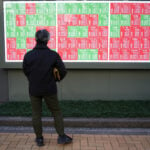 Stock market today: Asian stocks mixed ahead of US inflation data
Stock market today: Asian stocks mixed ahead of US inflation data
 TikTok seeks to reassure U.S. employees ahead of Jan. 19 ban deadline
TikTok seeks to reassure U.S. employees ahead of Jan. 19 ban deadline
 US won't seek charges in unarmed Black motorist Ronald Greene's fatal 2019 arrest
US won't seek charges in unarmed Black motorist Ronald Greene's fatal 2019 arrest
 Euro zone households could increase consumption, ECB chief economist says
Euro zone households could increase consumption, ECB chief economist says
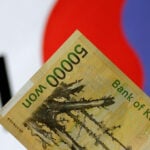 Foreigners sold South Korean equities last month by most since early 2020
Foreigners sold South Korean equities last month by most since early 2020
 As fires ravage Los Angeles, Tiger Woods isn't sure what will happen with Riviera tournament
As fires ravage Los Angeles, Tiger Woods isn't sure what will happen with Riviera tournament
 Antetokounmpo gets 50th career triple-double as Bucks win 130-115 to end Kings' 7-game win streak
Antetokounmpo gets 50th career triple-double as Bucks win 130-115 to end Kings' 7-game win streak
 No 97 Laura Siegemund upsets Olympic champion Zheng Qinwen at the Australian Open
No 97 Laura Siegemund upsets Olympic champion Zheng Qinwen at the Australian Open
